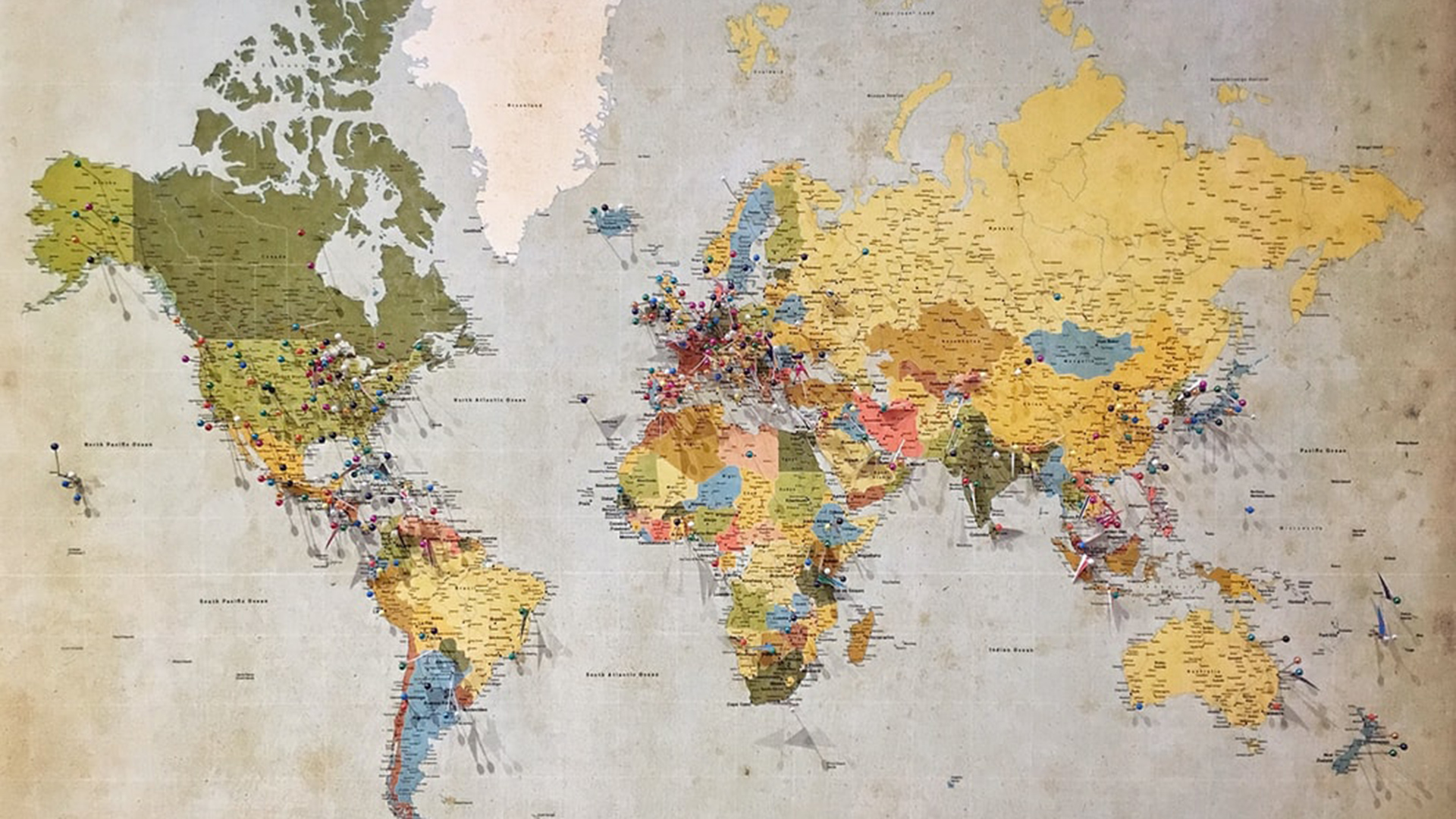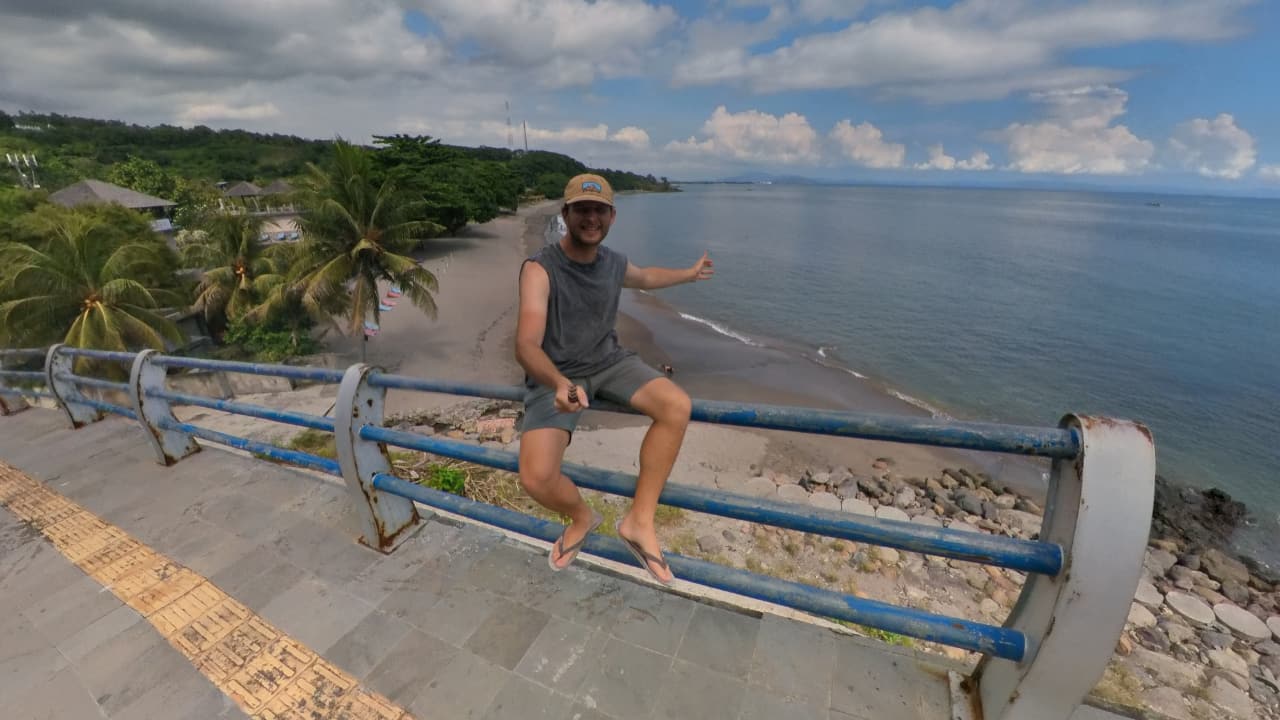
As the world gradually starts to open up travel again, here's why filming in a far off land can be great for you professional development.

Travel opens the mind.
They often say that you need 10,000 hours with a camera before you start to produce anything worthwhile. Ten thousand. That’s a lot.
The truth is, from the moment you first hit that big red record button, you never really stop learning. As filmmakers, we are constantly developing and striving to improve, pushed on by our own demands as well as the work of our peers around us.
For a long time, I’ve felt that shooting in a foreign country - filming something whilst travelling - is a crucial part of this development. Here’s why.
Ignite a spark
When you’re travelling in a foreign country, your brain is stimulated every single day. Because you’re experiencing something new your mind is stimulating. This leads to huge growth.
That’s incredibly important because with stimulation and growth come new creative ideas. You begin to see the world in a different light as you’re exposed to new stories.
The most fascinating stories revolve around people and places and travel is a natural facilitator to meeting new people and exploring new places.
For example, you may find yourself bored living in your hometown. It’s the same old people, the same old places. Nothing is new to you. Nothing is exciting. You pick the paper up from the same shop every morning and go to read it at the same cafe, ordering the same croissant and mug of coffee. Same people serving you. It’s all very mundane and routine. Is it any wonder people can become stuck in creative ruts?

Contrast this with taking yourself out of that comfort zone and going to the streets of Hanoi. Now you’re sat on a little plastic stool on the side of a bustling street, one of hundreds of locals starting their day off with a bowl of warm, delicious Pho. The mopeds and bikes are flowing by in a steady stream of honking beeps.
You’re introduced to the kitchen cook by your local guide and find out that the cook has been in the business for twenty years. They work 16 hours a day in order to help support their daughter, whom they hope will get a scholarship at a prestigious American University. They also have to look after their father who was maimed whilst fighting in the Vietnamese war.
Suddenly, you have yourself a story.
Think outside the box
You also identify new ways of doing things.
If you think about it, filmmaking, in its most basic form, is just problem solving. How do I use this light to my advantage? How do I get this drone shot of sunrise without disrupting the locals? How do I cut out the background noise of the road whilst conducting this interview outdoors? All of it is problem solving. Each challenge has its own solution.
Whilst in a foreign country you will find yourself having to navigate extra challenges. Things such as a foreign language you don’t understand or a different culture. You may encounter locals who are trying to tell you that you can’t film at a sacred temple site this week because of a festival going on. That doesn’t work for you though because your visa runs out next week. You need this shot.
So, through negotiations, you find your solution. You realise that there is a window of opportunity at sunrise on Wednesday. The locals are willing to let you get the shot then, for a price. You were planning to get aerial footage of the town on that Wednesday but you can move that to Thursday. Done.
So what have you learnt here? Firstly, you will have identified what makes a good translator. A local guide will have had to help you with all of these negotiations and you will have come to appreciate what makes them so good at their job. You will have also learnt to adapt and change your schedule. It’s taught you to be flexible and think quickly on your feet.
Furthermore, the long days of early starts, hours of travel, flat tyres, cultural barriers, late nights backing up footage? All of this will have helped you and your production team bond that much more. You need to know you can rely on and trust each other. Everyone’s importance is highlighted in situations abroad. You will have also made some great memories together, all of which bring you closer as a group.
Filmmaking abroad takes you out of your comfort zone and that’s important. It keeps your mind sharp and makes you think outside the box.

Expand your network
Working with people around the world broadens your horizons. You just never know what will come of something.
For example, that translator who helped you negotiate with the locals to film at the sacred temple site? He also knows the government minister in charge of wildlife and, through him, you’re able to obtain a very rare, exclusive permit to capture drone footage in one of the national parks. Footage that’s never been captured before.
Sometimes, when filming abroad, you might also need to bring in an extra camera op or someone to pull focus. Let’s say your drone pilot can’t make the shoot because he has a wedding at home, or they can’t obtain the right permit to fly in the country you’re going to. You’ll need a local who can step in. Building out your network of filmmakers and potential freelancers who can help you in different parts of the world is really, really useful. In the long run, it can save time and money.
Plus, it’s just great to meet people in the same industry as you who are operating in a different part of the world. There will be differences in how they do things that you can learn from and study.
Tags: Production


Comments